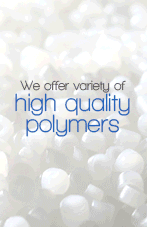Japan-headquartered Mitsui Chemicals Inc. (MCI), a strong player in the Southeast Asian region through its Singapore-based Mitsui Chemicals Asia Pacific (MCAP) affiliate, is staying true to its focus of achieving its double-digit growth target in the packaging market segment in the region. Its next challenge will be capturing more growth and further contributing to the broader market segment, say top executives from MCAP in this report on the firm.
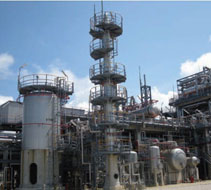
Japanese chemicals group Mitsui Chemicals Inc. (MCI), led by its aims of contributing broadly to society by providing high quality products and services to customers through innovations and the creation of materials, while keeping in harmony with the global environment, has had a solid and long-term relationship with the Asian market. It started off three decades ago in Singapore, and has since expanded its operations multi-fold. The company is active in business with its corporate vision of “constantly pursuing innovation and growth to become a chemical group with an undisputed global presence”.
In 2010, the company started up its second TAFMER™ alpha olefin copolymer plant, doubling its production capacity of the elastomer to 200 kilotonnes/year on the company's existing facility, utilising MCI’s technologies in polymer design, metallocene catalysts and production processes.
Last year, the firm increased the capacity for TAFMER™ by 8,000 tonnes/year and also added on warehouse facilities.
Also last year, Prime Evolue Singapore, a subsidiary of Prime Polymer (a joint venture of MCI and Idemitsu Kosan), held a groundbreaking ceremony for the new 300 kilotonnes production plant for Evolue™, a metallocene linear low-density polyethylene (m-LLDPE).
Investments in metallocene polymers, such as elastomers and high-quality polyethylene, “hold a potential to becoming future core businesses”, says the company.
This is in line with its adoption of the key strategy of high-value-added polymers growth with a focus on specific businesses and development areas.
It is little wonder then that the company is investing further in TAFMER™ and Evolue™ since the metallocene polymers are positioned as the group’s five world-leading businesses.
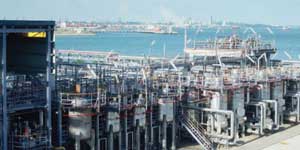
Augmenting its presence in Asia Meanwhile, to strengthen its presence in Asia, MCI set up its Asia Pacific (APAC) headquarters in Singapore in 2007. Mitsui Chemical Asia Pacific (MCAP) has advanced to become one of the four regional pillars that supports the goals of its parent company, MCI, within the region, with firm foundations in Singapore.
It oversees sales and marketing of functional chemicals, polymeric materials, films and polyethylene resin as well as provides technical support, logistics and business planning for the APAC market. Its coverage spans two continents: Australia and New Zealand and Asia (excluding Greater China, which is managed by Mitsui Chemicals Shanghai and Taiwan Mitsui Chemicals).
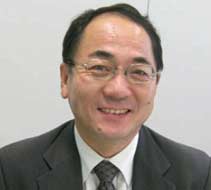
With 20 affiliates in the region, including Singapore, MCAP continues to be at the forefront of the polymer/ chemical industry.
“Managing this vibrant region, which is unique in its diversity, requires developing a flexible, yet clear direction,” says Yasushi Nawa, Managing Director of MCAP.
According to Nawa, MCAP’s commitment to its affiliates goes beyond the provision of shared facilities and market intelligence, which is to also support them in their navigation of the region.
Packaging platform a driver
This has driven the conception of the Packaging Platform. At its helm is Marketing Director Shigeharu Matsuzaka, who orchestrates this inter-divisional team.
“The purpose of our marketing is to contribute to society and environment in the region, delivering value through a variety of products and technologies of the Mitsui Chemicals group, in broader market segments like packaging, healthcare, automotive, electronics & information, building materials as well as environment and energy,” elaborates Matsuzaka.
With MCAP as a regional hub, the group extends its reach to its APAC customers by providing innovative products and services.
In the packaging platform, a range of materials are offered such as Evolue™ m-LLDPE base resin; speciality polyolefins (ADMER™, a tie-layer adhesion resin; TAFMER™ strong bonding resins and modifiers); TUX™ Tohcello speciality sealant film based on m-LLDPE and TAKELAC/TAKENATE PU adhesives for dry lamination.
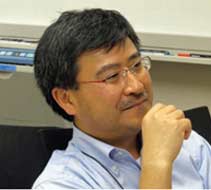
“Our willingness to listen to our customers’ needs, as well as by understanding the needs of the region while paying close attention to both sustainability and cost efficiency, has resulted in us providing cutting edge solutions that are backed by a competent and reliable technical team,” explained Matsuzaka.
Applications for the materials range from multilayer barrier flexible and rigid packaging, stand up pouches, liquid sachets, powder sachets, tube extrusions, extrusion coating and heat seal modifiers, all of which are growth earners in sales volumes for the firm.
In lieu of its previous three-year mid-term roadmap, MCAP sees the huge potential of growth in the APAC markets, even projecting that it will attain a doubledigit growth, especially in the packaging market segment.
Its areas of focus being functional films, functional sheets, nonwovens, coatings and adhesives, engineering plastics and compounding businesses, are known to be resilient to economic conditions.
The result has seen positive actions.
“We are happy to say we have been performing successfully in our areas of focus in the Asia Pacific region,” commented Matsuzaka.
R&D as a vehicle for growth
MCI also models itself on conscientious chemical management practices. Having said this, it invests heavily in R&D. The company has been focusing on core technologies “that will contribute to resolution of global environmental issues and make a difference around the world.”
Thus, MCI established the only group-based R&D centre outside of Japan. This is the Mitsui Chemicals Singapore R&D Centre (MS-R&D), which serves as the R&D base in the region and is mainly working on the application development of newly created materials using the company’s proprietary catalysts. At the same time, the centre has a function of technical scouting and information collection of the market needs, which are shared with the group and its affiliates around the globe for efficient product development.
Another technical facility in Singapore is the Technical Support Centre. It undertakes technical support for the functional polymer business, working in tandem with the MCAP marketing team.
As a commitment, MCAP is on a route to continuously improving its existing technologies and developing new ones to give it the competitive edge in the group’s priority businesses.
MCI has allocated a cumulative 100 billion yen towards R&D from 2011-2013; the priority businesses have been allotted 42% of the total investment. The group has witnessed several successful outcomes as a result of this investment.
Future-ready functional chemicals
Meanwhile, included under the five development areas are next generation functional chemicals as precursors to innovating existing materials with enhanced properties.
“Functional chemicals or materials are the ones with high functionality that cater to the benefit of our society,” says Dr Shigekazu Matsui, Director of MS-R&D. “Next-generation” refers to the ones that have demand but the commercialisation has not been realised, due to the technical hurdles yet to be overcome, he explained. “There is a need for such materials in various areas such as automotive, healthcare, environment and lifestyle sectors, just to name a few.”
An example of the next generation functional polymers MCI recently launched is Notio™ SN (syndiotactic elastomer with crystalline structure controlled in a nano order). Notio™ SN is expected to take the artificial leather market by storm in the next few years for its vastly improved properties over the current incumbents or the host of materials.
Another example is Exfola™, which is a new silicone surface modifier created by MCI’s proprietary catalysts and synthesis technology. Exfola™ has a good compatibility with polyolefins and realises the characteristics of silicone on the materials surface.
Globalised undertaking
Serving a mixed bag of applications, it is not surprising that MCAP’s products have become entrenched in every facet of daily life in Asia.
Nevertheless, the future will be privy to an exciting range of applications that are foreseen to becoming growth areas and likely investments.
“Transforming our business portfolio and globalisation has been the key pillars of our midterm business plan. The Mitsui Chemicals Group will continue to accelerate its basic strategy into the next mid-term business plan of 2014- 2017, taking a look forward towards the 2020s,” according to Nawa.
This will be undertaken through new material development, against the backdrop of reduced environmental impact of products, as part of the group’s commitment to the APAC region, and to the rest of the world.
For further enquiries on the company, please email: MCAP_enquiries@mitsui-chem.co.jp
(PRA)